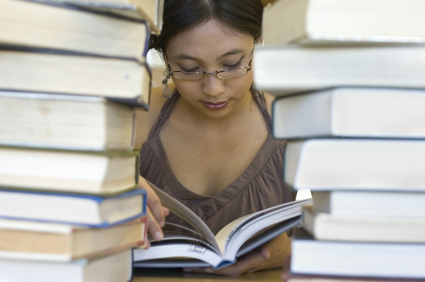
Brain Workout
There’s plenty of debate about whether or not Asian kids are “smarter” than Western kids, but I think this discussion is a little over-simplified. Also, creating and implementing a test that accurately compares millions of students around the world has got to be crafty feat, especially if run by governmental agencies across the world. The Programme for International Student Assessment (PISA) has attempted to “rate” countries for years through “evaluat[ing] education systems worldwide by testing the skills and knowledge of 15-year-old students.” But others, including Prof Stephen Heppell and Carole Chapman share doubts about PISA, which is frequently leveraged by politicians to fuel educational policy changes. They may have a point, but I think the bigger issue is better highlighted by taking a closer look at the educational environments of Western and Asian countries more broadly.
If you are American, Canadian, or another nationality in the West, you might be looking at the 2009 PISA scores with concern… but you should first ask foreign students visiting your country for their opinion. Ask them: “What was your primary-middle-high school experience like? What did you like/dislike about school when you were home? Why do you think our students have lower international scores than yours?” They might not have an answer for every question, but you will get some intimate details about the way education is handled within their culture. You’ll probably find that the conditions that create the results you see in PISA might not be worth it…

Steve Jobs and Mac
Certainly there are improvements to be made in academic environments around the globe, but it only comes from proper self-evaluation. A poor example recently came out in China. The government of Ningbo, made a public initiative to cultivate 1400 Steve Jobs-like innovators through the “Ningbo Innovative Talent Training Program.” It caused quite a raucous response around the Internet to say the least. The inkling that your institute could just “make” someone like Steve Jobs is uniquely Chinese, a place overwhelmed by mountains of intellectual property issues. The Japanese will also describe themselves as just innovators, but not inventors- a stereotype that they embrace publicly.
Western countries have higher educational systems that Asian countries envy. They constantly wonder what magic potion we put in the water to make our graduates masters of their own domains – whether it be technology, web, space exploration, etc. In the US, we cultivate students who will impact the world in different ways. Not everyone is Steve Jobs, but we do know that there is a good chance another one is already out there making magic happen in his own garage now. The magic is not something that’s put into the water, but what comes out of an open society with believably achievable incentives. A place where most people think “I’m a drop in the ocean” is not going to provide the results that come from a place like America. Let’s remember that, then be critical of ourselves again, and innovate the next phase of our educational legacy.
- Lie to me Because we’re Friends (asianliving.me)
- Future of learning: obsolescence of knowledge, return to real teaching (gigaom.com)
- Florida Educators: Yeah, We Think Asian Students Are Smarter Than Black Students, What’s Wrong With That? (oyiabrown.com)
- Most U.S. Students Lack Writing Proficiency: NAEP (huffingtonpost.com)
- What is PISA is all about? [animation] (olliebray.typepad.com)
- Australia unprepared for Asian Century (bigpondnews.com)
- Bella Book: Asian Faces (bellasugar.com)


 Custom Search
Custom Search